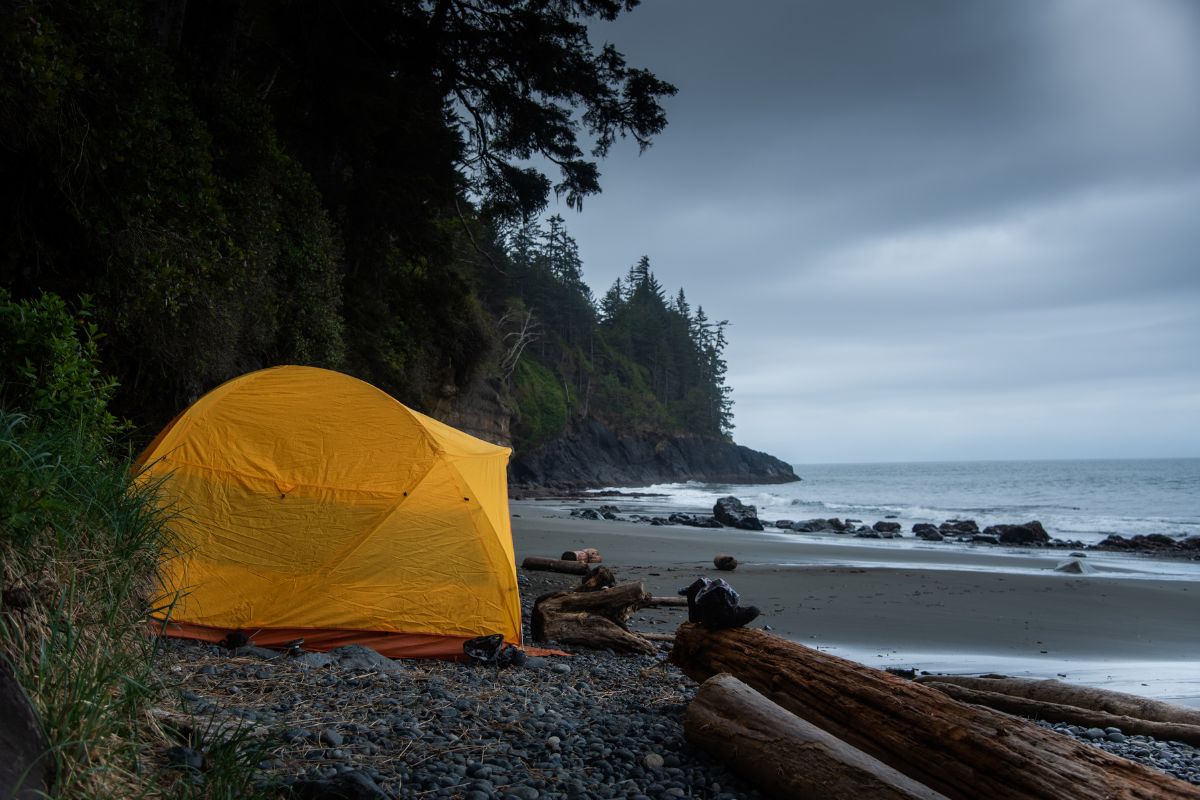I live on the beautiful island of Oahu, Hawaii, which means I’ve done my fair share of beach camping.
With this post I want to share some beach camping tips and tricks I’ve picked up over the years, as well as include a list of essential items for beach camping.
I’ve also done extensive research on beach camping to try to learn from the experiences of others who have camped in different beach environments, such as the Pacific Northwest.
This is one of my favorite types of camping and so let’s settle in and watch the tide rise with my guide to beach camping!
Table Of Contents
- Beach Camping Tips
- 1. Research permitting requirements
- 2. Are you car camping or hiking to the beach?
- 3. Make sure your car doesn’t get stuck in the sand
- 4. Consider water needs and availability
- 5. Check the weather report
- 6. But still prepare for rain
- 7. Study the terrain and figure out where high tide is
- 8. Pitch your tent near trees or shrubs
- 9. But don’t do the dunes
- 10. Also, your normal tent stakes may not work
- 11. Or just ditch the tent entirely
- 12. Put a layer between yourself and the sand
- 13. Pack warm clothes
- 14. Synthetic materials are awesome
- 15. Pack canned beer instead of bottled
- 16. Devise a sand prevention or removal system
- 17. Make sure campfires are allowed
- 18. Dig a fire pit
- 19. Bring your own shade
- 20. Bring a lot of sunscreen and possibly a hat
- 21. Beware the bugs
- 22. You can never have too many towels
- 23. Have a portable power supply
- 24. Bring plenty of garbage bags
- 25. Leave the beach as you found it
Beach Camping Tips
From planning your trip to setting up camp to cleaning up when you’re done, here are our 25 tips for beach camping for people of all experience levels.
1. Research permitting requirements
Here in Hawaii there’s no such thing as a private beach.
Every beach is public, but that doesn’t mean you can camp on any beach whenever you want. There are designated private and public campgrounds, and you need to register or get a permit.
Before adventuring out for your beach camping experience, make sure you’re permitted to be there.
2. Are you car camping or hiking to the beach?
Can you load up the car with all your gear or are you tasked with picking and choosing what will fit in your backpack?
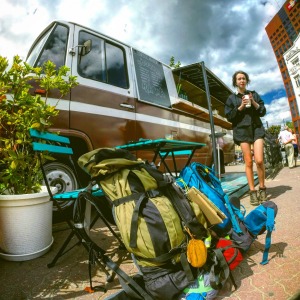
The answer to this question dictates things like how much cookware you can bring, the type of tent and bedding you can use, and more.
3. Make sure your car doesn’t get stuck in the sand
If you’re driving to the campsite, be careful not to get your car stuck. For example, here’s a list of cars that can handle driving on sand.
Related: Car Camping Essentials
4. Consider water needs and availability
Will there be a source of potable water nearby?
If so, great. If not, you’ll need to bring enough to last you for the duration of your trip — approximately 0.75-1.00 gallon per person per day for all consumption, cooking, and cleaning needs.
This brings us to the next beach camping tip…
5. Check the weather report
If you’re planning a summertime trip and expect to be camping in hot weather, extra water is a must.
I also like to check historic weather conditions to get a feel for the typical range of temperatures and precipitation. Because I’m an over-planner, I also like to look at the times for sunrise, sunset, and high and low tide.
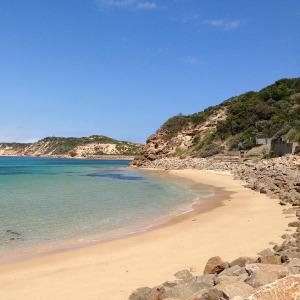
Also, don’t forget to check whether rain is in the forecast. If there is none, great!
6. But still prepare for rain
A simple rainfly packs away easily and can totally save you if the weather decides it doesn’t want to cooperate.
7. Study the terrain and figure out where high tide is
Once you get to the beach, take some time to survey the land:
- Where is the high tide line?
- Is there available firewood?
- What trees or shrubs are nearby?
At the very least you do not want to pitch your tent below the high tide line (duh!).
8. Pitch your tent near trees or shrubs
But you may also want to look for an area with some trees or taller shrubs. They can come in handy by protecting you from the wind, rain, and sun’s beating rays.
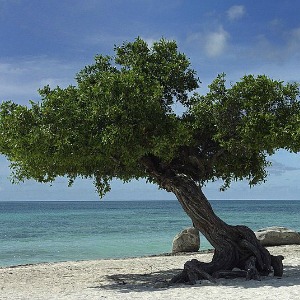
9. But don’t do the dunes
Sand dunes may just look like extensions of the beach, but they’re actually a separate, specialized habitat. The United States, and many other countries, take sand dune protection very seriously.
The following comes from FEMA:
Sand dunes are important first lines of defense against coastal storms and can do much to reduce losses to inland coastal development. It can be assumed that any removal or other alteration of a sand dune will render the dune more susceptible to erosion and increase potential damages to structures behind that dune.
Most people who choose to camp do so because they love getting away from the stresses of their everyday lives while connecting with the natural world around them. It’s up to all of us to do our part when it comes to protecting that natural world.
10. Also, your normal tent stakes may not work
If you’re pitching your tent on the land directly adjacent to the beach, your normal tent stakes may be fine.
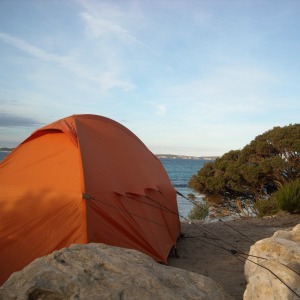
But do you know exactly where you’ll be pitching your tent before you get there?
If not, you may want to plan on securing your tent directly in the sand or on sandy soil. This is where typical tent stakes fall short.
Instead, you could try either of the following:
- Get special tent stakes intended for use in the sand (they’re short and fat)
- Bring bags you can fill with sand or rocks and anchor to the corners of your tent
If you don’t beach camp frequently, the second solution will work just fine.
11. Or just ditch the tent entirely
If the weather forecast looks promising and you have natural protection, you could even ditch the tent and sleep directly under the stars or camp from the bed of your truck.
12. Put a layer between yourself and the sand
Laying on the sand can be more comfortable than laying on the ground at a typical campsite, but sometimes it compresses to form this lumpy, wavy cement brick that’s anything but comfortable.
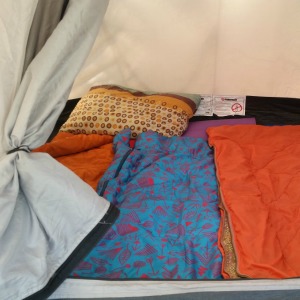
I like having a camping cot or air mattress between me and the sand.
Plus, if you’ve never camped on a beach before you might be surprised how cold it gets at night — even in the summer. Sand is terrible at retaining heat, so when the heat source (the sun) goes away, it can get uncomfortably cold.
13. Pack warm clothes
Piggybacking on beach camping tip number 12, make sure you pack warm clothes. They can take up space, which may be at a premium if you’re hiking to your campsite, but warm clothes are a necessity at all times of the year.
14. Synthetic materials are awesome
Synthetic fabrics, like nylon and polyester, are lighter, thinner, and don’t absorb water like cotton does. Since you’ll be on the beach, right next to the water, having clothing that dries quickly is key.
Suggested: Down vs Synthetic Insulation
15. Pack canned beer instead of bottled
Sea glass is amazing. I’ve been to Glass Beach on the island of Kauai, Hawaii and it was an incredible experience.
But sea glass takes 20-30 years to erode to its characteristic smoothness. In the meantime, glass on the beach is just a hazard.
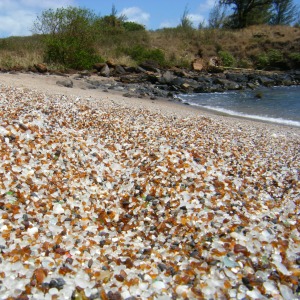
If you’re like me and look forward to your campfire beer, do the responsible thing and pack cans instead of glass.
16. Devise a sand prevention or removal system
Sand management is more important to some than others, but it’s very important to me. It boils down to two scenarios:
- Keeping sand out of your tent
- Removing the sand that does make its way into your tent
As far as keeping sand out, you could try the following:
- Set up a sand-free “buffer zone” by putting a tarp under your tent or laying a “welcome mat” by the door
- Keep a water bottle and towel by the door for on-the-fly cleaning
- Use a brush to wipe your feet before entering the tent
And for removing sand that somehow got in:
- Use a dustpan and broom
- Use a battery-powered or rechargeable mini portable vacuum
17. Make sure campfires are allowed
Being a responsible camper means following the rules.
I know, I sound like a buzzkill.
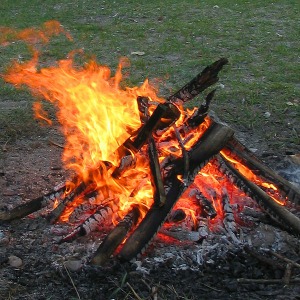
Check online or call the local Park Ranger’s office to see if there are any restrictions on campfires, such as how big they can be or whether they can be built at all.
18. Dig a fire pit
Assuming everything checks out, the first step in building a great campfire is to dig a fire pit. Beaches are notoriously windy places due to the temperature gradient between the land and the water as well as the lack of wind-breaking vegetation.
A good fire pit should be about 1-2 feet deep, and you can even line it with stones.
Besides protecting your fire from the elements, a pit provides insulation and is easy to put out by kicking sand over the embers.
19. Bring your own shade
It’s easy to get too much sun exposure at the beach, as the sun’s rays reflect off the ocean and sand. While you could always retreat to your tent, having some other form of shade is preferable. They are also nice to have for eating lunch or playing games.
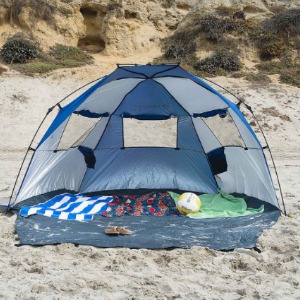
Big canopy tents work great if you can find the space to pack them away in your car. Otherwise, any kind of overhead protection will do.
If you’re familiar with the beach where you’ll be camping, you may know whether sufficient natural sun protection is available (read: trees), but you can’t guarantee someone hasn’t already beaten you there!
20. Bring a lot of sunscreen and possibly a hat
Doubling down on sun protection, make sure you have plenty of sunscreen and a large-brimmed hat. It’s recommended you reapply sunscreen every 2 hours.
21. Beware the bugs
Terminix gives you the rundown on all the beach bugs you should be on the lookout for. Honestly, I don’t worry about all of them. Just bring some bug spray and apply as needed. The smoke from the fire can help drive mosquitoes away, too. Or just check out our guide to keeping bugs away when camping.
22. You can never have too many towels
Unless you’re hiking to your campsite and can’t afford the extra supplies, I think it’s a great idea to have extra towels.
23. Have a portable power supply
Beach camping is great for unwinding, but it’s a little impractical to be completely unplugged.
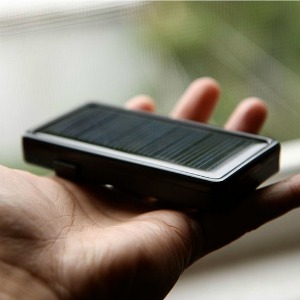
Sure, you don’t need to stare at your phone all day, but you can still play some beach tunes and talk/text.
Besides, it’s downright unsafe to not have a way of calling for help if you need it!
A portable power pack can come in handy to give you a few extra charges. You can get one that plugs into the wall to recharge or use a solar powered battery pack.
Check Out: Aukey vs Anker: Who Makes The Best Portable Power Banks?
24. Bring plenty of garbage bags
I do my best to minimize how much waste I create, but still I am constantly astounded by the amount of garbage I generate.
25. Leave the beach as you found it
Lastly, the reason you love to go beach camping is because it’s clean and serene when you get there. Make sure you leave it the same way once you’re finished so the next person can enjoy it as much as you did.
What beaches have you camped on? Do you have any tips you’d like to share? While I have plenty of beach camping experience, I definitely don’t have a complete list of beach camping tips. Connect with us on social media and let us know.

